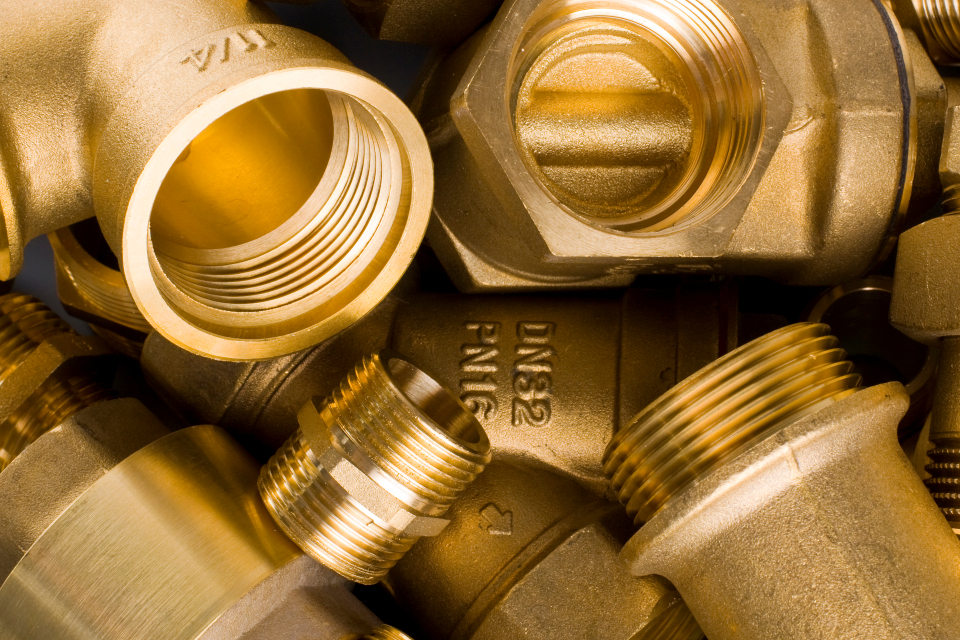The plumbing industry has experienced moderate year-over-year growth in the last decade. As a whole, the industry is now worth more than $107 billion in the United States.
This continual rise should come as no surprise. Most buildings across America are equipped with piping systems that carry water in and waste out. Among these buildings, however, some present more complicated jobs for plumbers than others.
You may think all plumbing is the same, but there are a few significant differences in commercial vs. residential plumbing. Plumbers working in these industry sectors have different requirements.
But what is the real difference between commercial and residential plumbing systems? How are the requirements of commercial plumbers different from those working in our homes? Continue reading to learn the answers to these questions and more.
Commercial Plumbing Undergoes More Daily Usage
Residential plumbing is used by an average of one to six people daily. Even larger or extended families generally have no more than ten people using the home’s pipes each day.
On the other hand, commercial plumbing can have hundreds or even thousands of people using the system daily. The pipes and fixtures in commercial environments are under considerably more stress than those found in homes.
This increased daily usage means additional pipes and outlets are necessary to handle the burden. The size of pipes in commercial applications are generally larger, and they need to be more durable.
Commercial Piping Systems Are More Complex
Residential piping systems are straightforward. There are a limited number of pipes running through the walls of a home. The number of outlets is also limited, usually to less than five.
In a commercial setting, piping systems are generally more spread out, with a higher number of outlets. How complicated these systems are depends mostly on the size of the building. If an office has ten floors, each of these stories will need access to plumbing.
The more stories a business building has, the more extensive the piping system will need to be. The water pressure at the ground floor will also need to be great enough to push water up the pipes into the uppermost floors. This task isn’t as simple as creating enough water pressure, however.
There are laws in place that regulate how much water pressure commercial piping systems can have. An appropriate pressure must be found that both supports need and follows regulations. This isn’t an issue with residential piping systems, which require significantly less pressure.
Commercial Plumbing Follows Stricter Hygiene Guidelines
There are strict guidelines regarding the hygiene of commercial plumbing systems that don’t apply to homes. These guidelines are more stringent in specific applications, such as restaurants or other places dealing with food.
Hours and Expectations Vary Between Commercial vs. Residential Plumbing
Many residential plumbers work standard eight-hour days. Sometimes, they may be required to be on call one or two days a week during evening hours if the company offers emergency plumbing services. Most of the work done in homes can be accomplished during regular hours.
This isn’t the case with commercial plumbing.
Commercial plumbers are required to work longer hours and be more flexible with their hours. Much of the work done in commercial settings can’t be done during regular hours. Instead, it has to be done on weekends, holidays, evenings, or nights.
The Difference in Plumbing Emergencies
Emergencies do arise in homes that need remedying right away. For example, if sewage is backing up into the house, this poses a health risk and can’t be put off. But many home plumbing “emergencies” can wait until the following morning.
Clogged sinks and leaking fixtures, for example, can wait. A clogged toilet in a home with at least two bathrooms can also wait. Only a handful of people living inside the house will be affected by these issues.
Plumbing emergencies happening in commercial settings are different for several reasons. Most importantly, more people will be affected by these issues. As many as a dozen (or more) people could end up being affected by a single clogged toilet.
Handling commercial plumbing emergencies is also a matter of public health and safety. As mentioned, there are more regulations for offices and other business settings. In some instances, even a leaking sink or clogged toilet could impose fines.
The potential for fines or worse from local health organizations due to plumbing issues means they need to be fixed immediately. There are few instances where commercial plumbing issues can wait.
Commercial vs. Residential Plumbing: Dealing With Damage Risk
When a plumbing issue arises, there’s also the risk of damage. Water and sewage flow through the pipes of all buildings and can cause a myriad of issues. Structural damage, a threat to human health, and more can easily be caused when something goes wrong with a building’s pipes.
The risk of damage is more extensive and severe in commercial settings when compared to residential. In a commercial environment, a leak on the fifth floor can have a significant effect on all the floors beneath it, also. Commercial plumbers are trained to assess and reduce these higher risks.
Do You Have More Questions About Commercial vs. Residential Plumbing?
Commercial and residential plumbers deal with many of the same things. Commercial settings, however, present more risks and require a more flexible work schedule. Residential plumbing systems are considerably less complex than their commercial counterparts.
Do you have more questions about commercial vs. residential plumbing?
Contact us today. One of our team members would be happy to answer any questions you still have.

